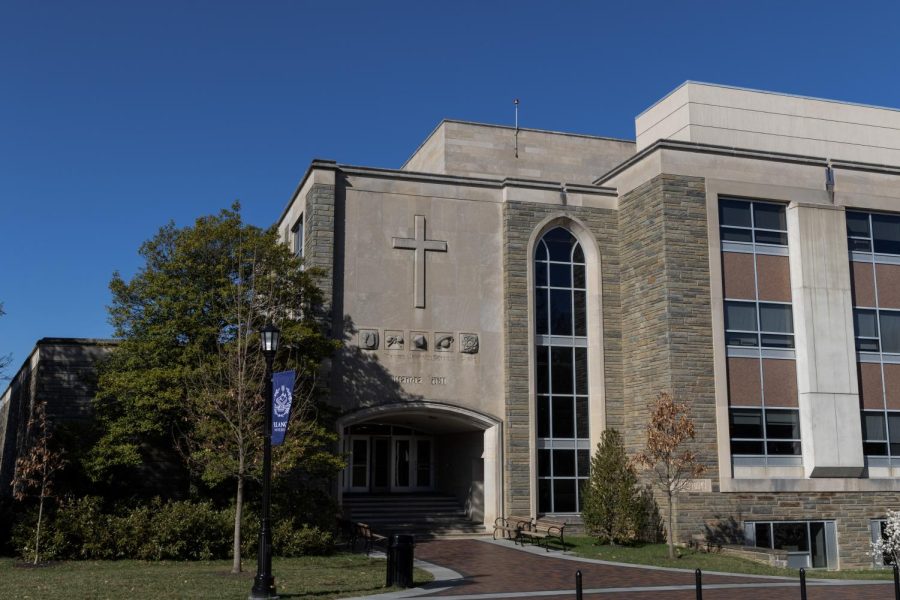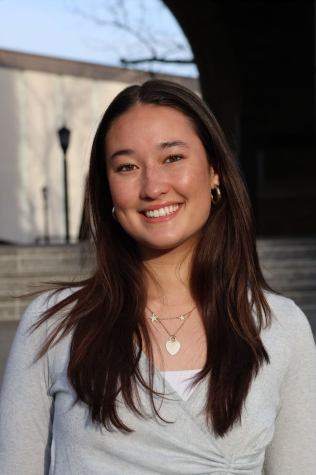SCI Phoenix Program Allows Access to College Education
Ryan Sarbello/Villanovan Photography
The program allows incarcerated people access to a college education.
May 6, 2023
About thirty minutes away from Villanova University lies the SCI Phoenix Project, a maximum security State Correctional Institution. While most Villanovans have never heard of the local prison, to over one hundred incarcerated people, Villanova represents their future.
Since 1972, Villanova University has offered the only degree granting program in Pennsylvania for incarcerated individuals. The Villanova Program at SCI Phoenix, which formerly was the Graterford Project, is one of the oldest programs of its kind that allows incarcerated people the opportunity to earn a college degree “teaching the same critical thinking, life-long learning and moral reflection skills that are hallmarks of a traditional, on-campus Villanova education.”
The University’s long and continuously running partnership with SCI Phoenix is rooted in “its Augustinian Catholic values and belief in the inherent worth and dignity of every individual.”
On June 30, 2022, the graduating class of 2022 received bachelor’s degrees earned from Villanova University as family, friends, staff, and special guests celebrated the eight graduates. Father Peter Donohue conferred the degrees alongside Program Director Katherine Meloney, SCI Phoenix School Principal Matthew Schwenk, and special guest speaker, Congresswoman Madeleine Dean, who represents Pennsylvania’s 4th District.
“The graduate that spoke on behalf of the class began his experience within the Villanova program 13 years ago. He recognized that his involvement with the program granted him the opportunity to become a better version of himself. “In his speech, he thanked his mother for her unwavering support. His voice cracked with emotion when he told her how it made him feel to give her something to be proud of, and — perhaps for the first time — to be proud of himself.”
His reflections are common ones amongst the approximately ninety graduates that the SCI Phoenix partnership has, as it celebrated its 50th anniversary in 2022.
Nancy Kelley, an esteemed PhD Professor at Villanova, worked within the program in 2006, when she was asked to teach Villanova’s infamous Augustine and Culture Seminar class (ACS) to Charles (Chuck) Zehring, who is incarcerated for life.
When they began working together seventeen years ago, her student-teacher relationship with Chuck revolved around letter-writing, which was the only way they were able to communicate. Luckily, as time passed, they were able to call each other, and a friendship quickly blossomed.
“It did not take me long to recognize just how vibrant [Chuck’s] mind is and how hungry it is for knowledge,” said Professor Kelley, “He graduated summa cum laude from Villanova University, and I could not have been prouder.”
With his graduation from the program in the past, Professor Kelley still takes at least thirty minutes every two weeks to talk with Chuck about intellectual ideas and current events.
“It is the easiest way I can live the Beatitudes,” added Professor Kelley, “It represents what we can do for others, and how we can provide a critical need to those who need it most.”
In sharing this, Professor Kelley speaks to the value of education and the value Villanova places on the sharing of intellectual ingenuity. Luis Gonzalez, who also enrolled in The Villanova Program at SCI Phoenix in 2006 and graduated summa cum laude 10 years later, earned a minor in history and a marketing certificate. “For him, a college education is about more than just getting a job—it was also about learning to be a better person and leaving behind who he was.”
“It was education that liberated women, it was education that liberated slaves, and it is education that’s going to liberate us in due time,” said Luis Gonzalez.
According to a 2013 study from the RAND Corporation, individuals who participated in prison education were 43% less likely to reoffend and 13% more likely to secure employment. The Villanova Program at SCI Phoenix sees this impact on the students that experience it. “Alumni who return to their families and communities often flourish—obtaining jobs and using their education to give back to the community.”
Also, a Villanova study found that students frequently develop” social capital and community-building skills, which allow alumni to develop relationships and become engaged democratic citizens—whether they remain incarcerated or re-enter society.”
Thirty students are currently enrolled in the Villanova Program at SCI Phoenix and are working toward their degrees.












